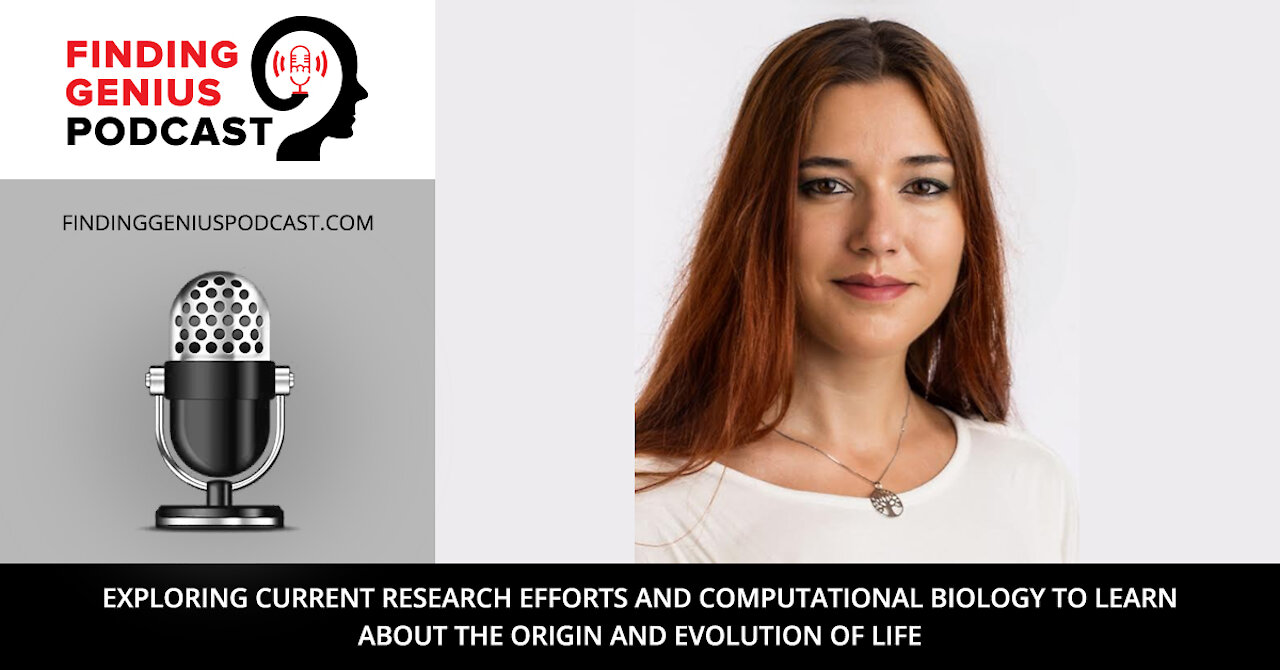Premium Only Content

Exploring Current Research Efforts and Computational Biology to Learn About Evolution of Life
One of the most profound questions in life is how did cells first materialize on Earth? Joana C. Xavier, Ph.D. is a scientist at University College London, bioengineer, and author who has focused her life’s work on finding possible answers to that question. She has an interest in systems biology, specifically the origin, evolution, and diversity of prokaryotic cells, minimal cells and chassis cells. Examples of Dr. Xavier’s work in computational biology include the analyses of the evolution of genes, species, and communities. She is also involved in large scale and integrative studies of metabolism.
Press play to learn more about:
The characteristics of prokaryotic cells and how they differ from eukaryotic cells.
How the dynamics of hydrothermal vents may have played a role in the origins of life.
How the vitamins and co-factors essential for us today played a vital role in establishing the first biochemical networks.
Dr. Xavier has a keen interest in the origin and evolution of life and believes that hydrothermal vents may have been the site where the first cells appeared. The ocean floor is well protected from the ultraviolet light produced by the sun. Natural chimneys form around the hydrothermal vents that release heated fluids necessary for cell development and they create a dynamic environment that would be favourable for life to evolve.
Because the focus of Dr. Xavier’s research is on the possibility of the origins of life deep in the ocean, collecting samples to conduct research is extremely limited and expensive. As a computational biologist, she uses massive amounts of specific types of data collected by other scientists and researchers to conduct big data analysis to test her theories.
The Earth is believed to be 4.5 billion years old which adds to the complexity of finding the origin of the first cell. Dr. Xavier believes there must be some type of necessity at the origin of the first cells that is governed by laws we do not yet understand. While it is difficult to determine exactly when life first emerged on the planet, some believe that it took place shortly after the Earth was formed. Identifying which genes are the oldest is challenging and the search continues to establish the last universal common ancestor (LUCA) which may lead to answers to the question of how cells materialized on Earth.
To learn more visit:
Joana C. Xavier website at https://jcxavier.org
Twitter @jrcxavier
Episode also available on Apple Podcasts: apple.co/30PvU9C
-
 29:41
29:41
FGP
12 days ago $0.03 earned💬 Breaking The Mold: Reversing Osteoporosis Naturally With Dr. Tomasz Forfa 🌟
511 -
 11:33
11:33
HarmonyMarie
3 years agoLearn about crystals
49 -
 1:23
1:23
Alheraki
3 years ago $0.01 earnedLearn about ants
227 -
 2:10
2:10
WXYZ
3 years agoFEMA talks about Ford Field efforts
161 -
 2:23:15
2:23:15
Nerdrotic
15 hours ago $12.47 earnedA Very Merry Christmas | FNT Square Up - Nerdrotic Nooner 453
116K11 -
 1:14:05
1:14:05
Tucker Carlson
15 hours ago“I’ll Win With or Without You,” Teamsters Union President Reveals Kamala Harris’s Famous Last Words
212K368 -
 1:58:31
1:58:31
The Dilley Show
14 hours ago $34.05 earnedTrump Conquering Western Hemisphere? w/Author Brenden Dilley 12/23/2024
159K49 -
 1:09:59
1:09:59
Geeks + Gamers
16 hours agoSonic 3 DESTROYS Mufasa And Disney, Naughty Dog Actress SLAMS Gamers Over Intergalactic
108K21 -
 51:59
51:59
The Dan Bongino Show
17 hours agoDemocrat Donor Admits The Scary Truth (Ep. 2393) - 12/23/2024
916K3.07K -
 2:32:15
2:32:15
Matt Kohrs
1 day agoRumble CEO Chris Pavlovski Talks $775M Tether Partnership || The MK Show
139K36